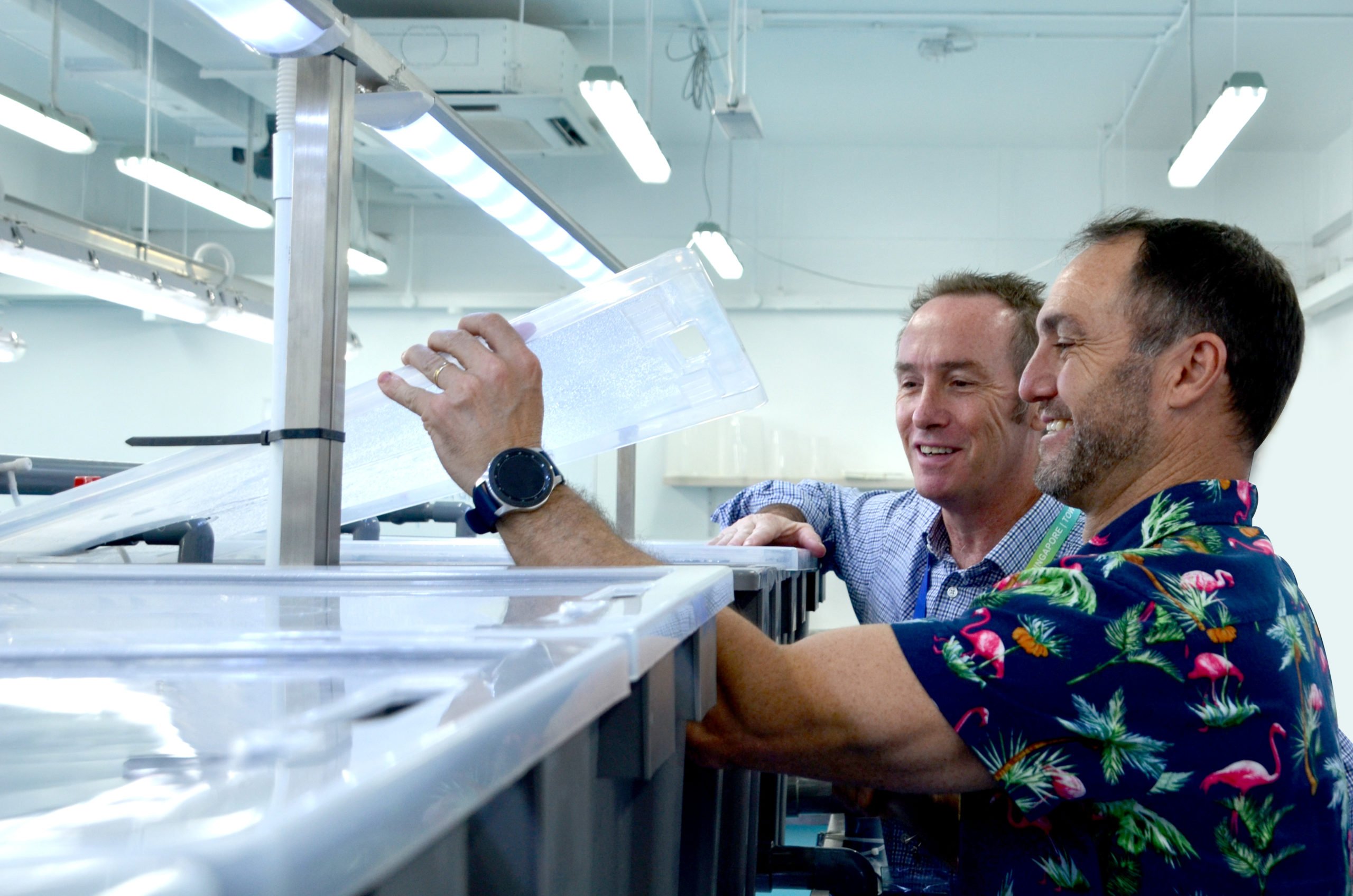- Sponsored Content

In food-obsessed Singapore, seafood is a way of life. As a nation that grew from a quaint fishing village, the island today is chock-full of excellent seafood restaurants. And who among us hasn’t heard of some of our finest national dishes – fish head curry and chilli crab?
Seafood is also suitable to feed a growing population – it’s high in protein, low in fat and full of nutrients. The good news is that aquaculture – or rather, the farming of aquatic organisms – can provide sufficient seafood for everyone in an environmentally-efficient way.
“For a country like Singapore that is so dependent on imports as its food supply, trade embargoes and geopolitical manoeuvring may impact on the ability of nations to import food in the future. It is thus extremely important that the country builds a buffer and has a degree of resilience to any perturbations in its food supply in the future,” explains Professor Dean Jerry, Director of the Australian Research Council (ARC) Research Hub for Advanced Prawn Breeding, and Director of the Tropical Futures Institute at JCU in Singapore.
He adds, “The way it can do this is to foster local production and/or alternative forms of food and protein generation, along with helping establish new trading partnerships. Aquaculture is the ideal industry to foster to help meet Singapore’s food security goals.”
Indeed, Singapore has made plans to have 30 per cent of our nutritional needs produced locally by 2030, up from approximately 10 per cent today.
To contribute to the aquaculture industry, JCU has highly skilled scientists and researchers covering all the major pillars of aquaculture research and development needs. What’s more, the University has cutting-edge tools and facilities, which can add great value to Singapore’s aquaculture R&D ecosystem. This includes the Aquaculture Research and Teaching Facility, which launched in the Singapore campus of JCU in 2019. The state-of-the-art facility ensures a comfortable environment for the aquatic life that are being kept, while allowing us to expand our understanding of aquatic life and identify more efficient methods of aquaculture production.
In addition to partnering with other innovative companies and institutions in the industry, JCU in Singapore also offers the Bachelor of Business and Environmental Science (Majoring in Aquaculture) and Bachelor of Science (Majoring in Aquaculture Science and Technology) These efforts are key to investing in aquaculture and paving the way for greater food security for Singapore.
Learn more about Bachelor of Business and Environmental Science (Majoring in Aquaculture) and Bachelor of Science (Majoring in Aquaculture Science and Technology) programs offered at the Singapore campus of James Cook University.








